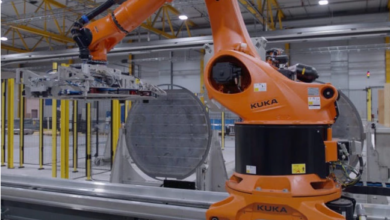Cement Australia and Mitsubishi study green methanol using hydrogen
The project is aligned with the Strategy and plays an important role in developing downstream from the green hydrogen hub.

Cement Australia (CA), a Holcim and Heidelberg Materials joint venture company, and Mitsubishi Gas Chemical Company (MGC) have signed a memorandum of understanding to study the manufacture and sale of green methanol made from carbon dioxide (CO2) captured at CA’s Gladstone plant and green hydrogen using MGC’s newly developed green methanol production technology.
At the forefront of sustainability, the project includes using renewable electricity and replacing fossil fuels with hydrogen and oxygen generated in the Gladstone Region.
The Gladstone region is the ideal location for growing a diverse green hydrogen sector with abundant renewable energy sources, existing infrastructure, including port facilities and a highly skilled workforce. The Queensland Government, under the Queensland Hydrogen Industry Strategy, prioritises the green hydrogen economy.
The capture and use of CO2 emitted by its operations into value-added products is a strategic pillar of CA’s decarbonisation roadmap. Leading the shift to green construction in Australia, CA is committed to advancing Australia’s 2050 net-zero targets from deploying its green building materials at scale to advancing next-generation technologies such as carbon capture and utilisation.
Based on MGC’s mission of “Creating value to share with society,” MGC has been promoting Circular Carbon Methanol (CarbopathTM), a technology for recycling CO2, waste plastics, biomass and other inputs into methanol for use in chemical products, fuel, and power generation. CarbopathTM uses proprietary catalysts that MGC has developed over many years.
Through this collaboration, CA and MGC aim to establish an approach to carbon capture and utilisation (CCU) that can accelerate the transition to a net-zero future. Methanol can be used for a range of products, and because it can be produced from CO2, it is expected to be a powerful resource for building a carbon-neutral society through the deployment of CCU. The project envisions selling the green methanol from this project to a wide range of consumers who demand circular and environmentally friendly chemical products.
CA and MGC will study the commercialisation of green products and promote cross-industry initiatives between the public and private sectors, not only in the chemical industry but also across industries. Creating a market for domestically produced green products will spread the benefits of CCU deployment across society while helping to build a decarbonised world.
